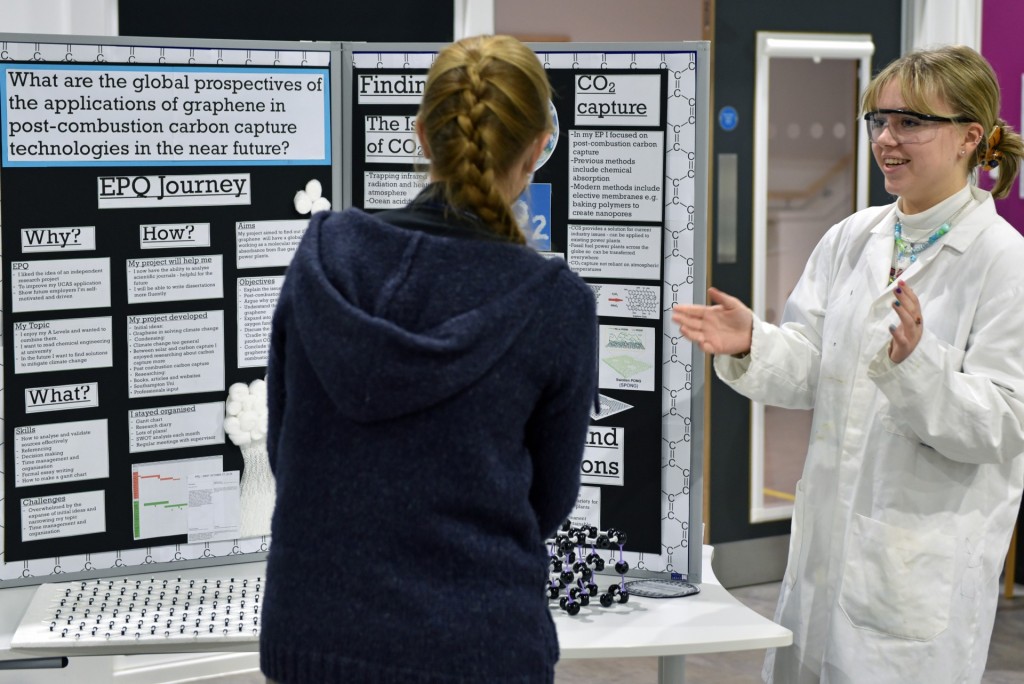Extended Project Qualification
EPQ is an integral part of your Talbot Heath Sixth Form experience. Talbot Heath was ranked as one of the top schools nationally for its EPQ results, with 87% of our students gaining A*- A grades.
What is the Extended Project Qualification?
This qualification is equivalent to half an A level. It is graded and carries more UCAS points than an AS level. Unlike with an AS level, you can achieve an A* grade. The course begins in Year 12 and is completed by December of Year 13.
Why choose the Extended Project?
The Extended Project offers you a unique opportunity to develop essential skills for Higher Education and the workplace, in a subject area of your own choice. It gives you more control over your study than ever before. You have a free choice of project topic. This level of choice and flexibility means you gain valuable research and project management skills along the way.
The EPQ is highly regarded by Universities
Some universities will make you a lower grade offer if you have a good grade in the EPQ. Even if it is not part of the offer, it can be used in your personal statement or interview to demonstrate your interest or aptitude in the subject.
How is the EPQ taught?
This is an independent piece of research. You will meet regularly with a member of staff, who will be your supervisor, to discuss your progress and to guide you and help you develop the necessary skills to complete a successful project. Southampton University will also be teaching you some of the skills you will need and you will have access to their library and all their research journals.
Here are are some of the impressive breadth of topics chosen:
- How does Arabic poetry express love?
- To what extent will the emerging drone industry impact the UK society by 2030?
- “The theory behind a broken heart.” The effect of negative emotions on the cardiovascular and neurological systems of the human body.
- To what extent did 19th century society and marital conformities suppress the women in Emily Brontë’s “Wuthering Heights” compared to in “Madame Bovary” by Gustave Flaubert?
- To what extent did Jacqueline Kennedy have a transformative impact on the role of First Lady?
- To what extent can money alter one’s happiness and life satisfaction?
- What was the motivation behind the assassination, murder or ritual killing of Nicholas II and the Romanov family?
- Should the accident algorithms for autonomous cars always be programmed to minimise total harm and in doing so what ethical dilemmas does this pose?
- What are the social impacts of Israel’s West Bank Barrier and Occupation on Palestinian youth?
- How effective has the action of the Australian government in counteracting aboriginal language loss been?
- To what extent have Latin and Classical Greek influenced the English language?
- What is the extent of the impact of biofuel production and use on the global food crisis?
- Was the 1969 Moon Landing one of the greatest achievements of mankind or the greatest deception of all time?





